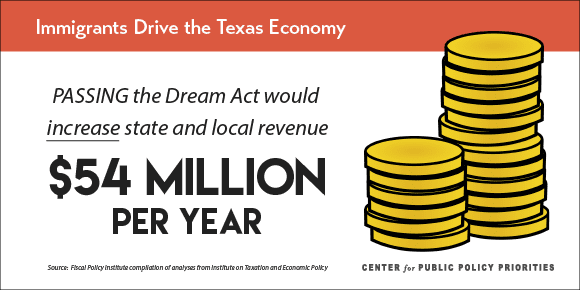On September 5, the Trump Administration announced that it would end the Deferred Action for Childhood Arrivals (DACA) program, the program for immigrants who were brought to the United States as children. DACA grants immigrant youth temporary relief from deportation and gives them authorization to work lawfully in this country. Ending DACA is contrary to core Texas values and bad for the Texas economy. DACA students pay tuition at state colleges and universities, work for Texas businesses, and contribute to their communities – they are our classmates, colleagues, and neighbors. They long to give back to Texas and our country, which for most, is the only home they have ever known.
The president then “challenged” Congress to provide a fix to the problem he created—presumably with something like the national Dream Act, a pathway to citizenship for immigrants who were brought to the United States as children. The Congressional Budget Office recently issued an analysis of the federal impacts. Our analysis considers what’s at stake for Texas’s economic and fiscal outlook with these federal proposals. In short, passing the national Dream Act would increase state and local revenue by $54 million.
Texas has a strong tradition of embracing immigrant culture, and immigrants have played a leading role in our state’s economic success. Congress must act now to put Texas’s young immigrants on the same footing as all other hard-working Texans. Texas Dreamers are our classmates, colleagues, and neighbors – they’ve worked hard to establish themselves in this country. The national Dream Act would make it possible for these young immigrants to continue with what they’ve learned in our schools, work to realize their full potential, and contribute fully to Texas communities and to the local economy.
Read our full report on the national Dream Act here.
